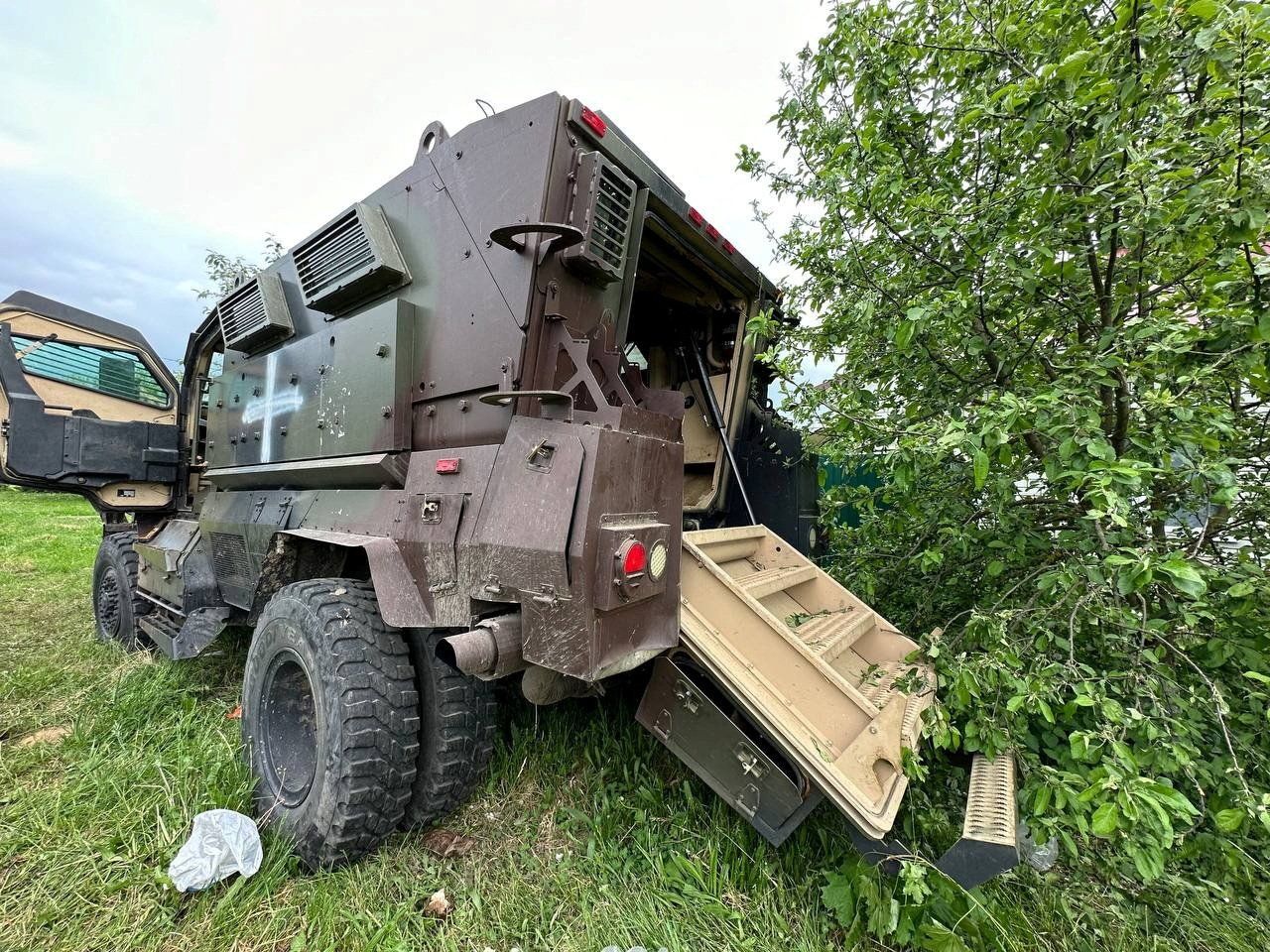From the beginning of Russia’s war on Ukraine, outsiders have wondered where Putin would draw a “red line,” the point at which Russia would escalate the fight with a tactical nuclear weapon, a sophisticated cyberattack, or some other tool that expands the war beyond Ukraine. With each new round of Western sanctions on Russia, the Kremlin has issued ominous-sounding threats. With each new debate over more powerful Western weapons for Ukraine, there were more Russian threats. When Finland and Sweden began moving toward NATO membership, still more Russian threats. Many in Europe and the United States have assumed that Putin has drawn a red line around the defense of Russian-occupied Crimea.
It’s not clear who was inside the armored vehicles that attacked Russia. Russia says they were Ukrainians. Ukraine says they were Russians who want to overthrow Putin. But the armor itself could only have come from the Ukrainian military, which clearly doesn’t mind if the world knows its weapons can be used to invade Russia. And emerging evidence suggests the fighters used some American-made weapons, as well. Maybe it’s all part of a Ukrainian plan to distract Russian commanders ahead of Ukraine’s counteroffensive and to redirect Russian troops away from Ukraine’s intended points of attack.
But there’s a more immediate question: How will Putin respond to this incursion into Russia? Is the Russian border a red line? Have the Ukrainians finally overplayed their hand? Or are the Russians now completely unable to throw a damaging punch – on the battlefield or in cyberspace?
The next few days may tell us a lot.
